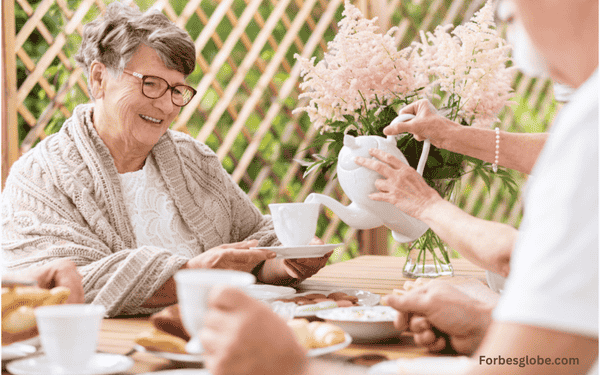Senior living is no longer just about medical care and daily assistance. Today, wellness activities are becoming an important part of the experience. These programs support physical, emotional, and mental health.
Seniors are living longer and want to enjoy their golden years with purpose and energy. Wellness sports provide more than entertainment. They assist in improving balance, reminiscence, mood, and social connections.
These benefits play a key role in helping seniors maintain independence and confidence as they age.
Physical Wellness Through Movement
Staying energetic enables seniors to feel more potent and on top of things with their bodies. Gentle motion improves muscle power, balance, and flexibility. This lowers the chance of falls and injuries. Wellness applications regularly include strolling clubs, stretching periods, and chair yoga.
Some communities also help seniors stay active with Tai Chi, a slow and flowing exercise known for its calming effects. This type of movement is easy on the joints and helps reduce stress while improving focus.
Even mild physical activity supports cardiovascular health and better sleep. These simple routines can turn out to be an amusing part of each day and convey a sense of achievement.
Mental and Cognitive Engagement
Wellness includes retaining the mind sharp. Seniors enjoy sports that challenge their questioning and enhance memory. Brain video games, puzzles, and reading are common alternatives.
Learning something new like painting, music, or a new language can bring fresh joy and mental stimulation. Many senior living communities offer creative workshops to keep the mind active.
Some additionally introduce mindfulness and meditation classes. These sports help reduce tension and promote a higher state of consciousness. Regular exercise helps seniors stay calm, focused, and mentally sharp.
Social Wellness and Community Bonds
Loneliness isn’t always an uncommon issue among older adults. Wellness applications offer opportunities to build friendships and avoid isolation. Group sports, such as e-book clubs, gardening, or shared meals, encourage seniors to connect with others.
Special events, such as film nights, holiday celebrations, or recreation tournaments, foster a sense of belonging. These moments help seniors feel a part of a larger community. Social interaction also helps emotional health and decreases the risk of depression.
Volunteering or mentoring younger people is another way for seniors to stay socially engaged. Being needed and valued gives lifestyles extra meaning.
Also Read: Active Lifestyle Ideas to Inspire Seniors in Community Living
Emotional and Spiritual Wellness
Senior living groups are also focusing on emotional and spiritual care. Many offer organization discussions, religion-based services, or get entry to to chaplains. These assets pose a risk to seniors, prompting them to explore their beliefs and values.
Art therapy and song therapy are gaining recognition. These sports allow seniors to explicit their feelings in creative ways. They also deliver pleasure and reduce pressure.
Wellness packages frequently consist of aid companies or one-on-one sessions with counsellors. These safe areas help seniors express their feelings and work through demanding situations in a healthy way.
Wellness That Adapts to Every Senior
Not every senior enjoys the same activities, so flexible wellness plans are important. Programs are often adjusted to meet different needs and ability levels. This ensures that everyone can participate, no matter their health condition or mobility.
Some seniors may enjoy active games, while others prefer quiet moments in a garden. The key is to offer choices and encourage regular participation. Personalized options show that each person matters and deserves to live with purpose and joy.
Also Read: Aging in Place: Resources for Seniors
Learn All About Wellness Activities in Senior Living
Wellness sports are shaping the future of senior living. These programs go past basic care and assist the complete individual, frame, mind, and spirit.
They help seniors stay active, connected, and happy. As more communities focus on well-being, older adults can enjoy healthier, fuller lives with dignity and joy.


